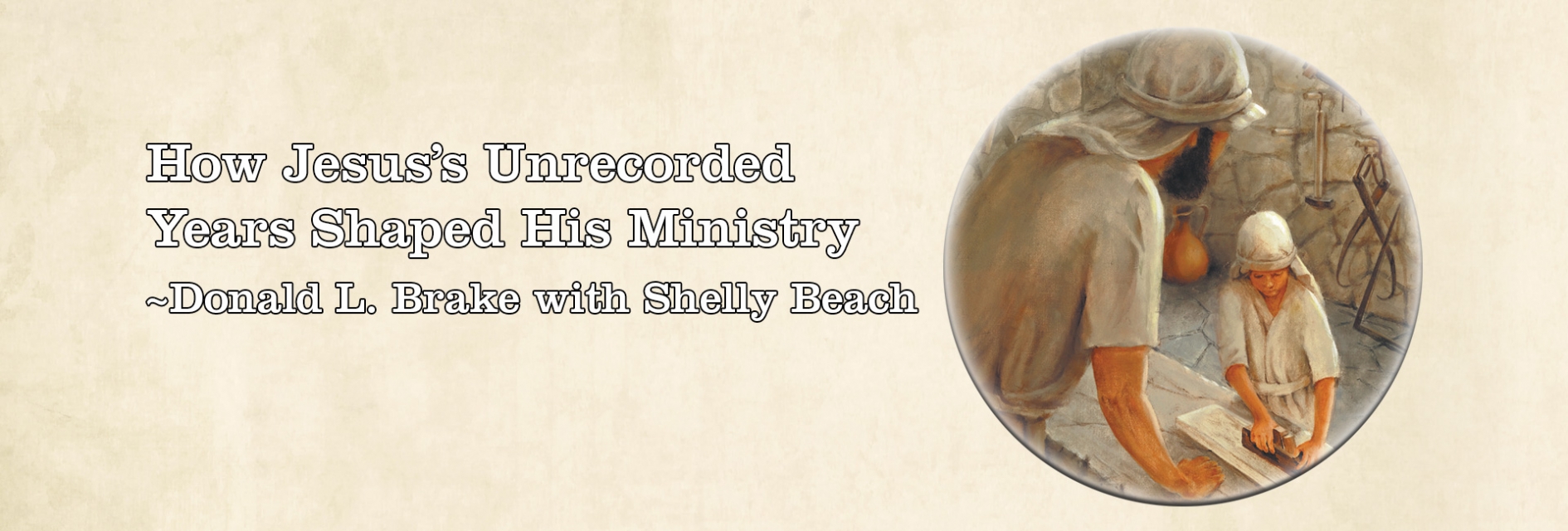


Perhaps comparing the training of children to the wrestling with dragons is a stretch, but we can probably agree that some times it seems about as impossible.
I have often wondered why Jesus didn’t give us, men, an example of how to be good fathers. We seem to know how to make babies but are often at a loss as to how to train them. Where can we observe the example of a loving, good father? There are many good biblical illustrations of godly mothers—but few fathers.
It certainly wasn’t Adam whose son became a murder nor Abraham nor Moses—they became God’s chosen, but their roles as fathers were questionable. Certainly, we can’t look to King David–a man after God’s own heart. His son, Amnon, fell in love with his sister, Tamar, raped her, then rejected her (2 Samuel 13). Son Absalom, using a festival celebration as an opportunity, ordered Amnon murdered. Later he usurped the authority of his father, David, and proclaimed himself king (2 Samuel 15).
Perhaps we would like to look to Joseph, Jesus’s earthly father for our example. While the New Testament does not mention the virtues of Joseph as a father, he undoubtedly had a very difficult job. He was God’s choice to be the father of God’s only son. How difficult would that be? He also had other sons: James, Jose, Simon, and Jude (Matthew 15:33). In addition, he had daughters (Mark 6:3).
Did Joseph ever discipline Jesus or his brothers and sisters? Scriptures encourages discipline: “No discipline seems pleasant at the time, but painful. Later on, however, it produces a harvest of righteousness and peace for those who have been trained by it” (Hebrews 12:11). “Whoever spares the rod hates their children, but the one who loves their children is careful to discipline them” (Proverbs 13:24).
Did Joseph ever apply the rod to Jesus? Why did Jesus’s family struggle with Him? Did any of Joseph’s children become teenage rebels? We know from the Scriptures that Jesus was sinless “For we do not have a high priest who is unable to empathize with our weaknesses, but we have one who has been tempted in every way, just as we are—yet he did not sin” (Hebrews 4:15).
Our imaginations feast on the possibilities as we let our minds flesh out the unrecorded years of Jesus’s youth. True, we have everything God wants us to know in the New Testament, but we wonder. They Called Him Yeshua: The Story of the Young Jesus peeks into Joseph’s complex life as Jesus’s (Yeshua) earthly father. What should Joseph do when Jesus appears to do something needing discipline? What constitutes “sin?” Is it misbehaving? Lying? Following peer groups in boyish mischievous acts? Read in They Called Him Yeshua and you will see the author’s speculation and let your imagination draw conclusions (pages 131-134).
“Local youths often hurled stones at soldiers to harass them. The soldiers typically ignored the boys, but after being hit too many times by stinging stones, guards sometimes gave chase. They rarely caught troublemakers. Locals helped the boys elude their pursuers by allowing them to dive into homes, shops, or piles of merchandise so the hooligans could disappear at any moment.
“Mary shrunk in embarrassment the day a soldier came to the door with Yeshi, who was struggling to get free, slung over the soldier’s hip. The captain’s strong hand kept Yeshua firmly in place.
“Woman,” he announced with a stern voice, “your boy was throwing stones at soldiers. I will ignore his insolence this time, but if he continues, I will take measures to punish him.
“The rough, sun-darkened soldier compressed a grin behind his forced scowl. Mary effusively thanked the captain who had brought Yeshi home, rather than taking matters into his own hands. She tried to explain that this behavior was unlike her son, saying that he was well-behaved and obedient.
“What in the world possessed him to throw stones at soldiers?
“She sighed, confused. Nothing like this had ever happened before. What shall I do? Punish him? Scold him?
“Mary looked at her wide-eyed son, whom the captain had lowered gently to the ground. Yeshi, bewildered, rubbed a red spot on his arm where he had been gripped.
“He’s not angry or ashamed but confused.
“Her son shook his head as he stared at the ground. Mary promised the soldier that when Yeshua’s abba returned, he would discuss the matter with the boy.”
This Father’s Day let’s remember, as fathers, we are responsible for the godly training of our children—let the Scriptures’ words guide us.
About the Author
Written by Donald L. Brake Sr.
Donald L. Brake Sr., PhD, Dallas Theological Seminary; Dean Emeritus, Multnomah Biblical Seminary of Multnomah University. A former pastor, he lives with wife Carol, in Lewisville, Texas. The author has served as a Missionary in Ethiopia, SIM; Professor of Theology, Multnomah Biblical Seminary; Pastor, North Carrollton Baptist Church; President, Institute of Holy Land Studies (now Jerusalem University College; and dean Multnomah Biblical Seminary; and co-founder Living Word Bible Museum. He currently is a freelance writer. The author’s experience as president of the Institute in Jerusalem has given him insight into the historical, cultural, and geographical background of Israel and the life of Christ. Dr. Brake has led tours to the Holy Land and has taught the life of Christ and the Bible’s historical/cultural backgrounds for more than thirty-five years. Dr. Brake wrote a series of fifteen articles for the St. Louis Metro Voice and has published the Wycliffe New Testament. His book A Visual History of the English Bible was published in 2008 (a 2009 Evangelical Christian Publishers Association Christian Book Award finalist); Jesus, a Visual History with Todd Bolen, 2014; A Monarch’s Majestic Translation, in 2017; and A Visual History of the King James Bible, in 2011 (with Shelly Beach; also translated into Portuguese as "Uma Historia Visual Da Biblia King James"), a commemorative edition celebrating four hundred years of the King James Version. His major article “Versions, English” was published in The Interpreters Dictionary of the Bible, vol. volume 5, Abington Press. His most recent work is They Called Him Yeshua: the Story of the Young Jesus, 2019.

